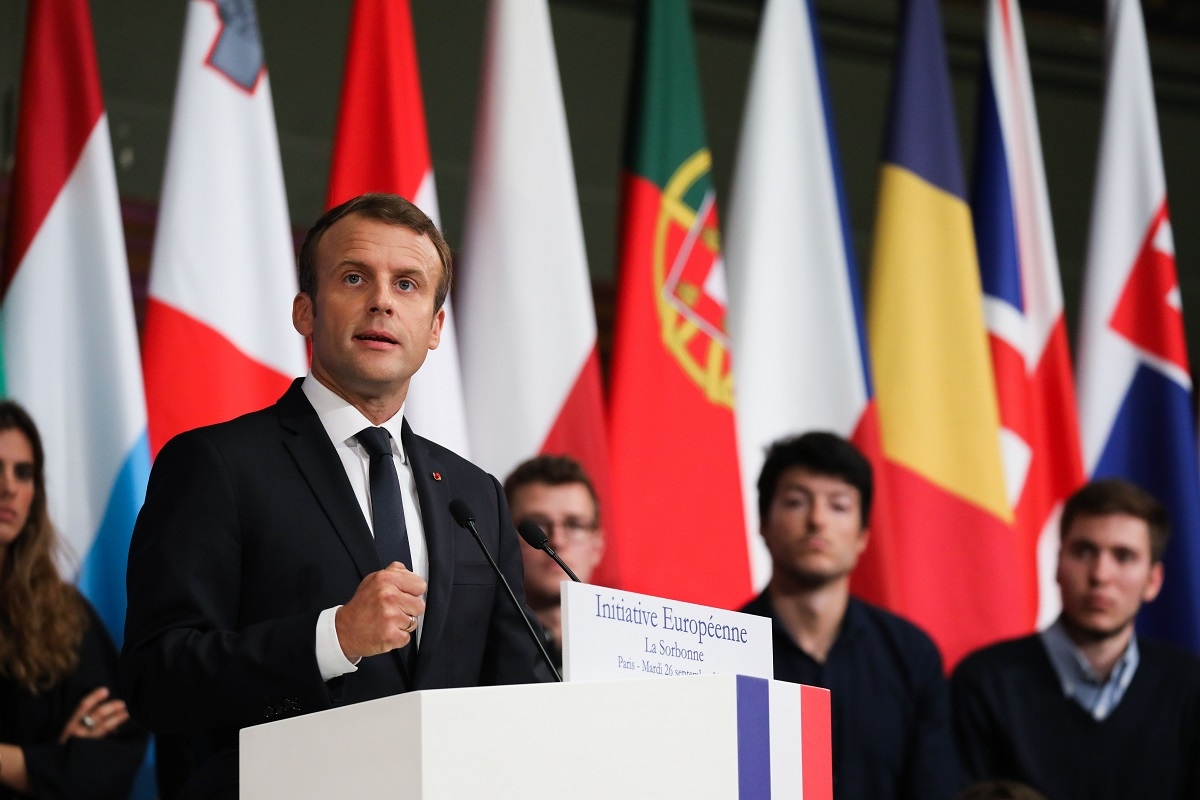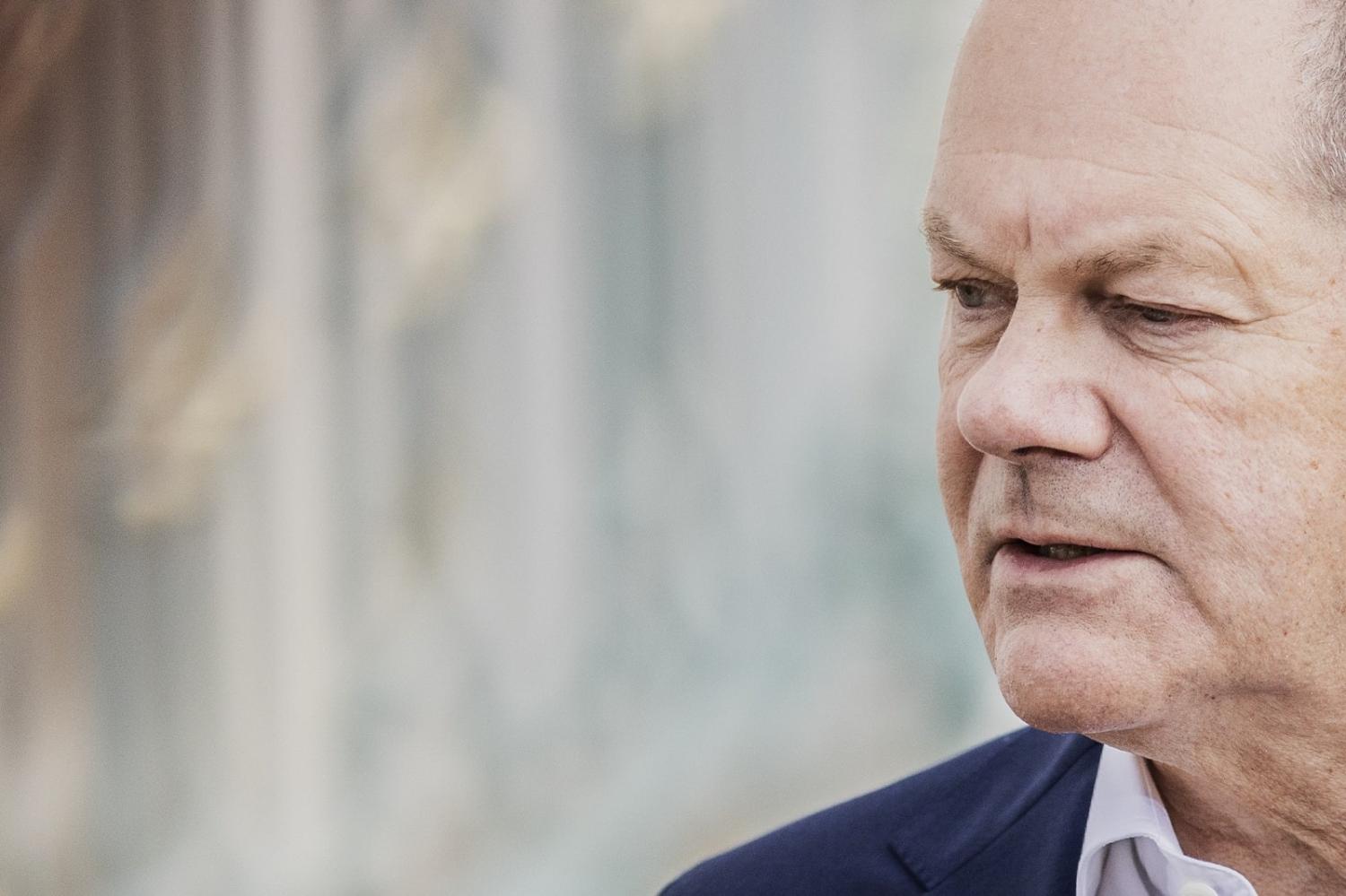The German Chancellor Helmut Schmidt once quipped that, in politics, “whoever has visions should go to the doctor”. Big-thinking and inspiring rhetoric do not marry easily with the compromise-driven gradualism that typifies post-war German democracy. It is a lesson that Schmidt’s successors have learned all too well. So, when Olaf Scholz stepped up to the lectern at Prague’s Charles University on Monday to deliver a keynote speech on the Future of Europe, expectations were not especially high.
A landmark speech on Germany’s Grand Plan for Europe was long overdue: Emmanuel Macron’s Sorbonne address, in which the French president laid out his plans for greater European coordination on fiscal, defence, climate and migration policy, took place almost five years ago. In the months and years that followed it, Macron’s circle could barely conceal their frustration that Angela Merkel, Scholz’s predecessor, never reciprocated his sentiment with a future program of her own. Without the joint will of the European Union’s Franco-German engine, major reform is nigh on impossible.
In Prague, Scholz acknowledged Macron’s groundwork by explicitly invoking the French president’s beloved notion of European sovereignty: “When, if not now, will we create a sovereign Europe that can assert itself in a multipolar world?” Scholz asked. No doubt, observers in Paris were amused by the sight of a German chancellor only now demanding urgency on these matters. But they surely would have been pleased to hear Scholz expressing his support for Macron’s controversial idea to deepen formal cooperation between EU and non-EU states through a “European Political Community”.
For the most part, the proposals advanced by Scholz were either anodyne, old, unrealistic or simply accelerated versions of processes already underway: cementing Europe as a world leader in climate protection and tech production; expanding the European Union to encompass the current candidate members from the Balkans, as well as Ukraine, Moldova and (in the long run) Georgia; including Croatia, Romania and Bulgaria in the Schengen Area.

Some, however, were bolder – and more controversial. Expanding EU membership to as many as 36 countries, Scholz acknowledged, would require some far-reaching changes in the Union’s organisational and administrative processes: forsaking the EU’s cornerstone principle of unanimity for majority-based decision-making, for example; or having the EU commissioners (of which there is one from each member state) sharing responsibilities. But these proposals were laced with caution – after all, the Union’s smaller members are unlikely to voluntarily renounce their cherished veto right. Indeed, at a joint press conference with Scholz that very afternoon, the Czech Prime Minister Petr Fiala affirmed that his country was “cautious” on the matter of “shifting away from unanimity”.
Still, it would be a mistake to dismiss the significance of Scholz’ contribution entirely. For there was more at play in this speech than the specific proposals alone. Of particular consequence is how the German chancellor articulated what he sees as his country’s place in an expanded – and especially more eastern-centric – European Union. His catchword in Prague was “solidarity”. And the choice of this word was surely not accidental. Among some of Germany’s neighbours, it carries something of a sinister tone: at the height of the financial crisis a decade ago, the European “solidarity” for which Germany called was often seen as a byword for the imposition of crippling belt-tightening and technocratic governance.
By contrast, there was a certain tone of humility in the way Scholz addressed Germany’s European partners on Monday. In particular, his remark that, in the provinces of migration and fiscal policy, “ideology has given way to pragmatism” might be read as a statement of repentance for what others have criticised as German imperiousness in EU affairs during the Merkel era. And by impelling a shift in the continent’s mental geographies (“Europe’s centre is moving eastwards”), Scholz held out the assurance that the Union’s eastern states would no longer be viewed as second-class Europeans.
The war in Ukraine, of course, is what gave this speech its import. By focusing minds on the fundamentals, Russia’s invasion of Ukraine in February this year has injected an evident sense of urgency into European matters. Through the way Europeans had generously taken in Ukrainian refugees and collaboratively recalibrated the continent’s energy supply, Scholz declaimed, “we have breathed new life into the word solidarity”.
To take the German chancellor at his word, one would think that the war has changed everything. Much has been written about the so-called Zeitenwende (“Change of Era”) announced by Scholz in an extraordinary session of the Bundestag three days after the invasion. This would presage a new epoch of muscular German presence in European affairs, buttressed by an immense increase in military spending. But the precise meaning of the Zeitenwende for Europe has remained unclear. Rectifying this lacuna was the central point of Scholz’ speech.
The Zeitenwende accordingly provided the impetus for Scholz’s boldest and most consequential intervention: locating security and defence at the very heart of the European Project, and thus furthering the idea of “a sovereign Europe”. In the view of the German chancellor, the war in Ukraine demands a complete transformation in how Europe must see itself. A European Union that began as an “inward-looking peace project” must now concentrate its energies on external threats, he said. Scholz proposed a European air defence system, in which Germany would “invest heavily”. He also called for an “Independent Council” of Europe’s Defence ministers, analogous to those in the fields of Environment and Agriculture. The European Union would in addition have its “rapid reaction force” ready by 2025.
In the end, what was perhaps most consequential about Scholz’s Prague speech was not its specific contents, but the mere fact it took place at all. Behind the characteristically dull and bureaucratic delivery was the promise of a new approach to Germany’s relationships with its European neighbours and allies. Perhaps, after all, this was indeed “vision” – albeit expressed in a very German way.

